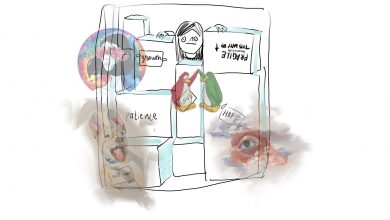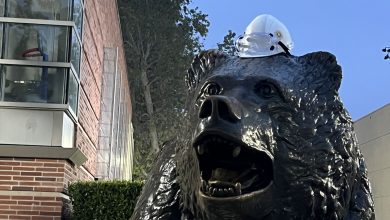Artist Profile: Luisa Valenzuela

Image by Dianna Kim
Luisa Valenzuela is an Argentine novelist and short story writer whose work questions hierarchical power structures and gender-based power systems through satire. Valenzuela is most well known for her work produced in opposition to the dictatorship in Argentina, which lasted roughly from 1976 to 1983.
While it’s hard to make generalizations about the scope of Valenzuela’s work, systems of oppression form an underlying thread in all of her fiction. As Valenzuela has said, “the world breathes politics, eats politics, defecates politics,” and, “to say “the writer under a politics […] is for me just like saying the writer alive.”
Valenzuela’s work primarily criticizes these systems of oppression through what is sometimes described as “magical realism” or “surrealism,” but, as Valenzuela has said, “For me it’s very realistic, for the metaphor is real, so on what side do you take the metaphor? […] It’s like photography. Are you using a normal lense or are you using a wideangle lens? Latin American fiction uses a wideangle lens, so the borders of the image can be distorted but it’s still reality, it’s still what is there.”
While her work is informed by the dictatorship, it is also intertwined with gender identity and gender-based violence. In an interview, she described the connection between the two: “Sometimes the violence at home, is a reflection of the violence outside of the home. The internal violence of somebody, with one’s self, always has to do with what’s going on outside.”
Valenzuela’s novella, “Como en la guerra,” or “He Who Searches” was censored by the government after the coup in 1976. While they cited a scene in which the main character was tortured by Argentine soldiers, the entire novella was subversive in its portrayal of gender identity, sex work, and revolutionary activity. Valenzuela then fled to the United States in 1978, where she continued to produce work informed by Argentina and the dictatorship.
In 1983, she published “Cola de lagartija,” or “The Lizard’s Tail.” This was a roman à clef (a work in which real people or events appear thinly disguised as fiction) based on the life of José López Rega, the minister of social welfare under both Juan and Isabel Perón’s presidential administrations in Argentina. López Rega was, according to Seguridad: Crime, Police Power, and Democracy in Argentina, by Guillermina Seri, a Rasputin-like figure to Isabel Perón. In “The Lizard’s Tail,” however, López Rega is a “Sorcerer” who rules over the independent Kingdom of the Black Lagoon. In Valenzuela’s work, López Rega and images of oppression are translated into tangible propagators of the intangible, and that which is horrifically incomprehensible becomes meaningful through metaphor.
Valenzuela has also drawn focus to language’s role in oppression, saying, “if you don’t fight against patriarchal language then you don’t think how the language of the oppressor and the governments is taking place. And I’m very aware of what the discourse of power is and the discourse of the first world versus the third world.” In this way, Valenzuela’s literature directly engages with the language of subjugation. For example, “He Who Searches” satirizes the hyper aggressive language of misogyny through an interlude narrated by a neighbor angry with a sex worker, writing, “all the girls in the neighborhood listen to her because she’s bewitched them and before long it won’t be safe for us men.”
Additionally, Valenzuela emphasizes the importance of memory in oppression, saying “I’m very worried about memory, about the fact that you tend to repeat the past if you ignore it,” and, “Argentina’s always trying to obliterate your memory, so there’s all this story of pardons and amnesties for the generals implicated in the tortures, as if one could make a clean slate of past horrors.” Thus, through the remembrance of these crimes, Valenzuela’s work serves as a resistance against the violence of authoritarianism.
Valenzuela continues to be a voice of defense and resistance against misogyny, violence, and authoritarianism, and will remain so for a many years to come.



